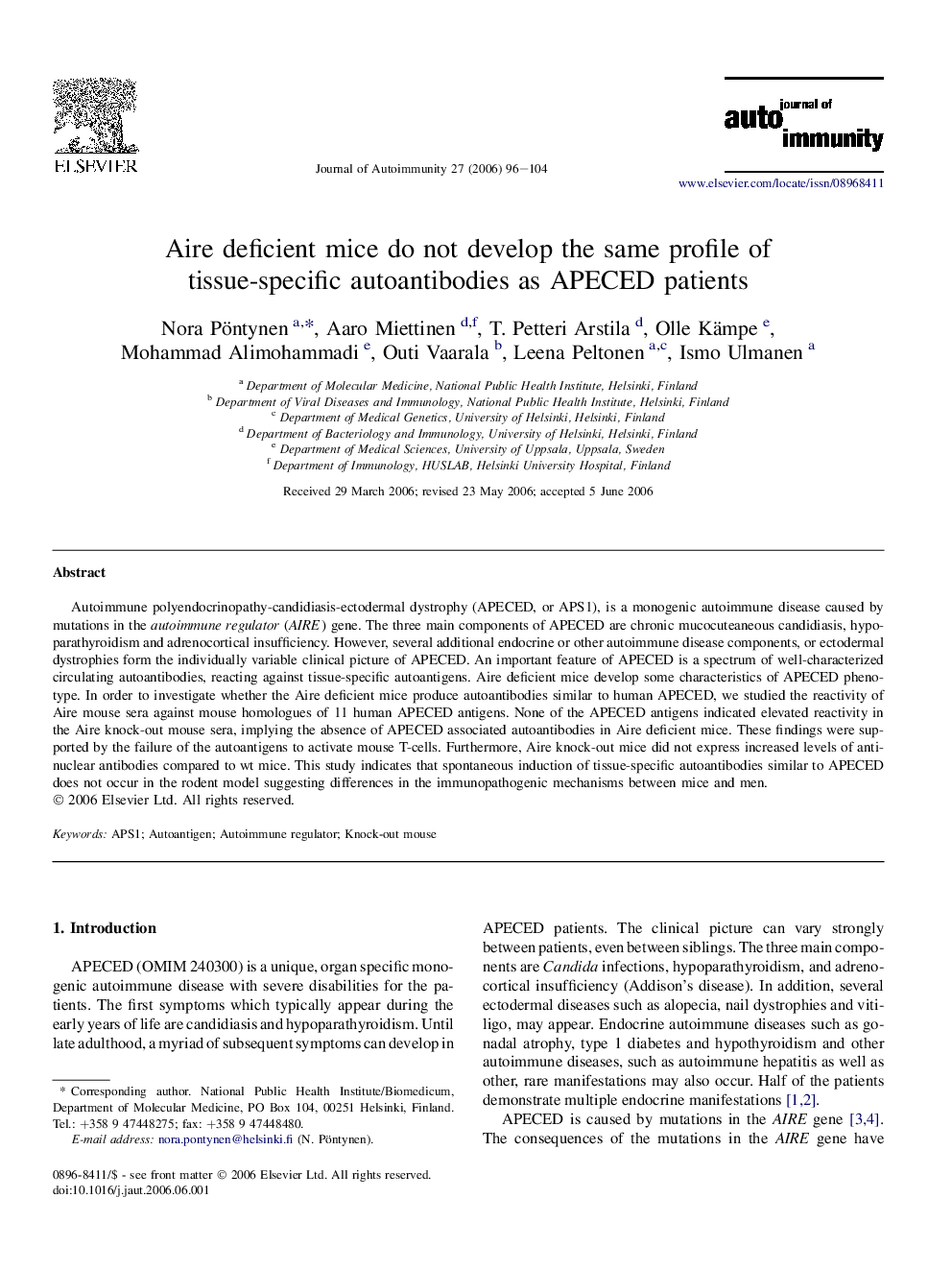| Article ID | Journal | Published Year | Pages | File Type |
|---|---|---|---|---|
| 3368578 | Journal of Autoimmunity | 2006 | 9 Pages |
Autoimmune polyendocrinopathy-candidiasis-ectodermal dystrophy (APECED, or APS1), is a monogenic autoimmune disease caused by mutations in the autoimmune regulator (AIRE) gene. The three main components of APECED are chronic mucocuteaneous candidiasis, hypoparathyroidism and adrenocortical insufficiency. However, several additional endocrine or other autoimmune disease components, or ectodermal dystrophies form the individually variable clinical picture of APECED. An important feature of APECED is a spectrum of well-characterized circulating autoantibodies, reacting against tissue-specific autoantigens. Aire deficient mice develop some characteristics of APECED phenotype. In order to investigate whether the Aire deficient mice produce autoantibodies similar to human APECED, we studied the reactivity of Aire mouse sera against mouse homologues of 11 human APECED antigens. None of the APECED antigens indicated elevated reactivity in the Aire knock-out mouse sera, implying the absence of APECED associated autoantibodies in Aire deficient mice. These findings were supported by the failure of the autoantigens to activate mouse T-cells. Furthermore, Aire knock-out mice did not express increased levels of anti-nuclear antibodies compared to wt mice. This study indicates that spontaneous induction of tissue-specific autoantibodies similar to APECED does not occur in the rodent model suggesting differences in the immunopathogenic mechanisms between mice and men.
